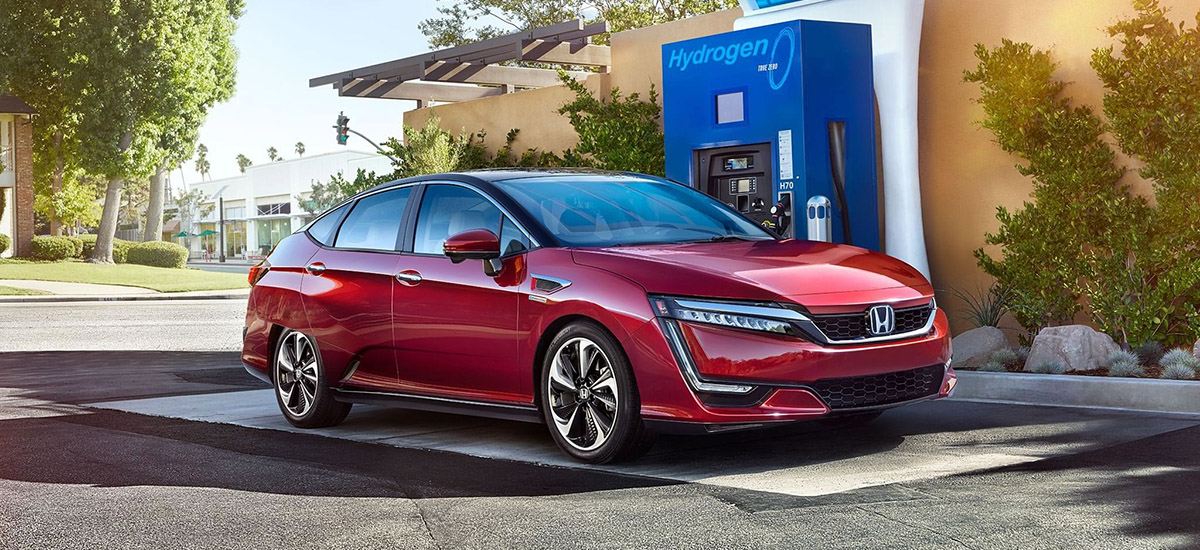
 Your Credit Estimate
Your Credit Estimate
 Your Credit
Your Credit
Your zip code helps us provide you with the most accurate vehicle pricing and vehicle availability.
We estimate your credit score to give you an idea of your monthly payments. To get an accurate payment amount, complete our credit application by clicking the Start Credit Application button below.
start credit application
The sun - an ever burning ball of fire, a prime example of nuclear fusion, and we have yet to harness the true power of the sun and the energy it gives off. A world running on clean energy is still a ways away, although we probably have the technology to make it possible today. However, clean fuel is an ever increasing possibility. We have hybrids, plug-in electric vehicles (PHEVs), all-electric vehicles (EVs), and soon enough we might even have hydrogen fuel cell vehicles. It’s all-clean energy, but at the moment it’s not very practical. Still, wouldn’t it be interesting to drive a car powered by a miniature sun?
Okay, that’s a little sci-fi, we know, but maybe one day. At the moment, automakers like Honda, Toyota, Hyundai, and GM are working towards making hydrogen fuel cell vehicles the new standard. The interesting part? This technology isn’t as new as one may think. GM introduced the first hydrogen fuel cell vehicle back in 1966. Powered by steel tanks containing hydrogen and oxygen, the vehicle could travel 150 miles without stopping. However, it also exploded on one occasion, so the use of hydrogen fuel cell vehicles was pushed aside for a bit.
That brings us to present times. In the last three years, Honda, Toyota, and Hyundai leased several hundred hydrogen fuel cell vehicles, and expect to lease over 1,000 in 2017. GM recently supplied the US Army with a fuel cell pickup truck, and they’re collaborating with Honda on designing a new fuel cell system to debut in 2020; around the same time, Hyundai plans to introduce a long-range fuel cell SUV, and even Kia Motors is on board for their own fuel cell vehicle soon after. No longer is this just a dream.
"We've clearly left the science project stage and the technology is viable." - Charles Freese, head of GM's fuel cell business.
Like electric vehicles, hydrogen fuel cell vehicles run quietly and emission-free. The problem? Hydrogen fueling stations cost at least $2 million to build. The U.S. currently has about 34 hydrogen fueling stations, but companies have been reluctant to build more of them until hydrogen fuel cell vehicles become more popular. In 2016, 1,082 fuel cell vehicles were sold in the U.S., which is a very small number compared to the 80,000 electric vehicles that were sold that year. Hydrogen fuel cell vehicles have a way to go, but just a few years ago, electric vehicles weren’t as popular as hybrids. If the trend keeps up, hydrogen fuel cell vehicles may not be that far off.
There’s of course pros and cons just like with any other vehicle. Plug-in hybrids (PHEVs) can travel anywhere between 30-50 miles on electricity alone, and then gasoline takes over; hydrogen fuel cell vehicles go over 100 miles on one charge. Most PHEVs and electric vehicles take anywhere between 30 minutes to several hours to charge up; hydrogen fuel cell vehicles fill-up in minutes, but can cost as much as $80 whereas electric vehicles can be charged very affordably.
For now, we’ll have to wait a couple of years and see if more automakers hop on the bandwagon. After all, cars are becoming more futuristic by the day. The autonomous vehicle race is almost at the finish line, and flying cars are starting to debut. Can hydrogen fuel cell vehicles really be that far off? We’ll know for sure come 2020.
Photo Source/Copyright: Honda